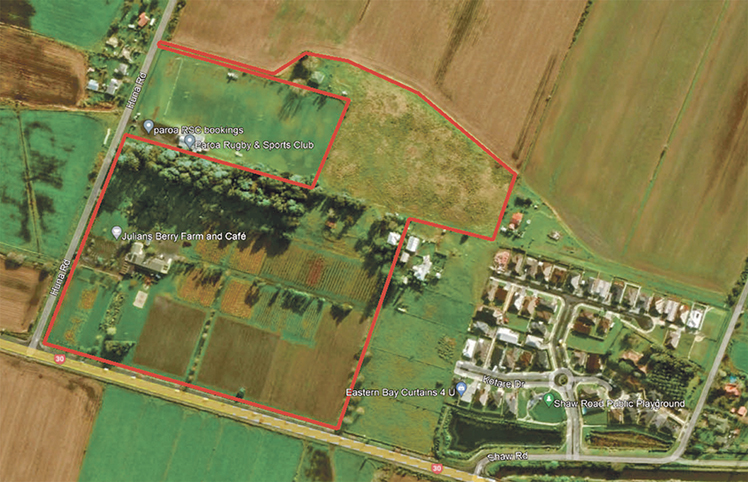Making room to grow: Plan Change 8 gets the green light

.
A key plan change to unlock new housing in Whakatāne has been approved, paving the way for around 175 new homes, including papakāinga and medium-density options.
Whakatāne District Council has confirmed that Plan Change 8, which rezones around 15 hectares of land near Huna Road, will be fully operative by the end of the month.
This means the change will be officially part of the District Plan – there are no more appeals or legal steps to work through.
The land includes the well-known Julians Berry Farm, neighbouring properties at 234 and 234A State Highway 30, and 30A Huna Road which is already consented for 56 papakāinga homes.
Council manager policy, planning and consents compliance Nicholas Woodley said the decision was a significant step toward addressing local housing challenges.
“With steady population growth over the last decade, we’ve needed to find smart and sustainable ways to increase our housing supply,” he said.
“Plan Change 8 supports that need by allowing a mix of housing types and a coordinated approach to infrastructure, subject to obtaining the necessary resource consents.”
Following public notification of the proposal in early 2024, 169 submissions and three further submissions were received. Several issues raised were resolved through the pre-hearing process, with remaining matters discussed at a hearing in December 2024. Eight submitters or groups presented their views to a panel of experienced independent commissioners, who issued their final decision in February 2025.
With no appeals received by the April deadline, the final steps to make the plan operative were confirmed at yesterday’s council meeting. The changes will be formally incorporated into the District Plan and take effect from May 26.
Mr Woodley said a strong strategic case underpinned the plan change, with support from local landowners and iwi organisations.
“The proposal reflects collaboration between private landowners, Kawarehe Trust, council and Government agencies to develop an integrated, culturally inclusive neighbourhood,” he said.
Kawarehe Trust chair and spokesperson Erin Te Pou welcomed the outcome, noting the opportunity to provide much-needed housing on whenua Māori.
“This is a positive result for our Trust, our whānau, and the wider community,” he said.
“The change enables the Trust to provide affordable housing in a culturally responsive manner.”
The new zoning allows for a variety of housing options, including kāinga which emphasises communal living and shared resources.